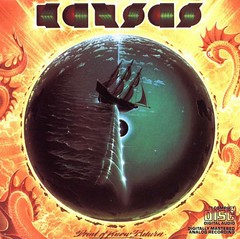In April of this year a relatively obscure mathematician named Yitang Zhang set the world of mathematics on it’s ear when he proved that no gap between two prime numbers will ever exceed 70,000,000. That’s a pretty audacious claim and it must be wrong. But mathematically he seems to have proven something that many others have tried...and failed to do. And he appears to have the support of many an esteemed mathematician. If prime numbers continually get larger, but the gap between them ceases to increase for very large values...and I mean very large values (the largest prime number currently known is 2^57,885,161 − 1, to put that into your calculator you would have to punch 2 x 10 to 57,885,161 and then subtract 1)...will prime numbers eventually run out? Yitang says no...but since prime numbers are the building blocks of all other numbers, it stands to reason that once you run out of gap, you eventually run out of prime numbers between the gap, and then ultimately you run out of numbers. Does this mean we can stop counting? Can you imagine the end of the number line? Kind of like the end of the Earth. There’s a giant waterfall and over you go. Or, perhaps like the Mayan calendar, maybe we just start counting all over again...it actually isn’t the apocalypse, it’s just a Y2K scare.
If it’s true, God will have to go back to the drawing board because it seems, he meant to refer to infinity as simply a concept since personally he was never actually able to count that high. Since Yitang’s proved we still have infinite pairs of prime numbers, even though the gap between them grows not larger then 70 million, his math must be wrong. Regardless he has created quite a stir since many are believing his math to be correct. In situations such as these, I tend to cast a skeptic's eye on the situation. If he’s reached an upper bound, no matter how good his math might be, if it means the end of the number line, either there is no such thing as the infinite or he has made a error. Personally, I hope there is an end to the number line. That will end our search for things that don’t matter. Professionally, however, I sense there must be some mistake. Kind of like neutrinos traveling faster than the speed of light. Go back and check the math there is an error in the assumption.
What’s left to do, however, is to prove, or disprove, that the number of twin pairs of prime numbers, prime numbers separated by a gap of 2, could be infinite. The two seem quite different yet are clearly tied together. If it turns out that prime numbers separated by a gap of 2, are infinite, then again Yitang’s math has to be wrong. If it turns out that they are not infinite, then his math is correct but his assumption that prime pairs are infinite has to be incorrect, and therefore we eventually run out of numbers. Either way it has to be wrong because we can’t run out of numbers...they are an artificial abstraction that we can always increase by 1.
Therefore the error here could be the limit theorem. If you chose a number such as “infinity” to approach, you have chosen a bound. Therefore you can find another bound, inside that bound, if you look far enough. What this means, simply, is that it’s time to expand our definition of infinity... Instead of the world getting smaller, since we reached the end of the number line under our current definition of infinity, the world just got bigger. The point of know return, therefore, just got a whole lot stranger.


